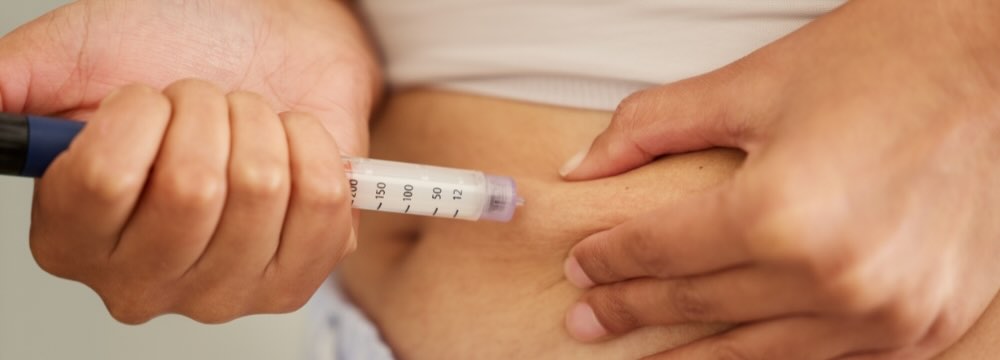GLP-1s
It’s not a failure, and you’re not alone. Let’s get that out of the way. Done, and done.
Here at MIIS, we are getting more and more calls about patients who feel like they failed on the GLP-1 drugs.
The feeling of failure for each patient can vary significantly. Some people feel like they have failed to close the gap after already losing a significant amount. For others, it’s losing a lot of weight and then regaining some of it later. Sometimes, insurance coverage is taken away, resulting in weight regain, or a life stressor takes hold and seems to ruin progress.
No matter who or what the reason is for the perceived failure, the first, most crucial thing you need to know is that it’s not a failure at all.
To understand why, we need to understand the basics of GLP-1 medications. These are drugs that work on the hormonal system in the gut to help induce satiety and ultimately suppress hunger. This works by slowing the motility of the stomach and preventing patients from eating as much as they would have previously.
They are not a magic solution. Just like any other weight loss program, there’s more than one factor that needs to be present for weight loss to be long-term, significant, and sustainable. To that end, many patients are unaware that not consuming enough protein and insufficient exercise can lead to substantial loss of muscle mass and bone density. The body adapts, and eventually, most patients will plateau because they aren’t receiving the necessary nutrients to maintain their health. In turn, the body changes its metabolic needs, slowing down and inducing fatigue, as well as other changes that require less metabolic function.
Second – and we really want you to remember this: you’re not alone. While it may seem that everyone is losing a significant amount of weight on GLP-1 medications, the truth is quite far from that narrative. In fact, depending on the study, approximately 40-80% of people give up on their GLP-1 program within the first year, most frequently due to cost and adverse events, but also because of dropped insurance coverage and lack of weight loss.1 Again, you’re not alone – millions of other people are in a similar position.
Why is it important to know you’re not alone?
Weight loss is as much a mental activity as it is a physical one. Yes, you can improve your exercise and dietary habits for months, but if you haven’t made that mental change, it simply won’t last. This is why most people who lose a significant amount of weight through exercise alone tend to regain it over time. This is also why many people on GLP-1 drugs aren’t able to get past the 20-25% body weight loss widely reported by research studies.
It’s also important to understand that the studies on GLP-1 meds didn’t universally induce that level of weight loss. In fact, in most cases, only about one-quarter to one-third of study participants achieved the highest level of weight loss. The average patient experienced far, far less weight loss, and some experienced none at all.
So what are the next steps? Do I just quit? Is there any hope left?
We must be honest with you. Some patients are very well suited to GLP-1 therapy, specifically those in the lower category of obesity, with a BMI of 35 or less. In these cases, GLP-1 medications are effective, and when patients follow a proper diet and exercise plan, they can achieve a weight that promotes health and offers long-term success.
For patients with a BMI of 40 or higher, it’s time to recognize that lifestyle changes and even medication may not be sufficient and are often most effective when combined with bariatric surgery, which can lead to significantly greater long-term weight loss.
It’s also important to remember that once you exceed that BMI threshold, patience is key, and significant weight loss doesn’t happen overnight.
Follow-up challenges
GLP-1 medications are now being prescribed online, and this approach can present challenges that bariatric patients typically don’t face – managing complex body changes on their own.
One of the significant benefits of a bariatric surgical program that also offers medical weight loss is that it provides well-defined dietary and exercise programs to ensure proper muscle mass retention during substantial weight loss. We also follow patients to ensure they do not develop significant vitamin deficiencies. Unfortunately, this is not the case for many patients who are prescribed GLP-1 meds and sent on their way.
So, what next?
If you have not had success with your current (or past) GLP-1 therapy, we encourage you to consider a comprehensive medical weight-loss program, such as MIIS. We can help you restart GLP-1 therapy alongside a personalized diet and exercise plan to maximize results and maintain them long term. We can also discuss the benefits and risks of bariatric surgery – either as a primary weight loss option or as a next step to build on any progress you have made with GLP-1 therapy.
The most important thing you can do is build on your gains. If you are plateauing, don’t let it get you down. Be proactive and consult with a qualified professional about a comprehensive weight loss program to prevent regaining weight and losing your momentum.
- Rodriguez, Patricia J, et al. “Discontinuation and Reinitiation of Dual-Labeled GLP-1 Receptor Agonists among US Adults with Overweight or Obesity.” JAMA Network Open, vol. 8, no. 1, 31 Jan. 2025, jamanetwork.com/journals/jamanetworkopen/fullarticle/2829779, https://doi.org/10.1001/jamanetworkopen.2024.57349.




